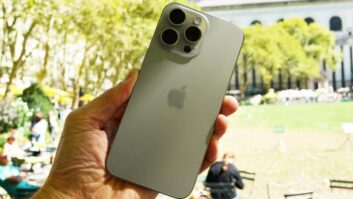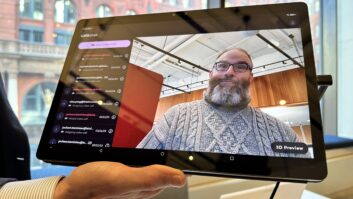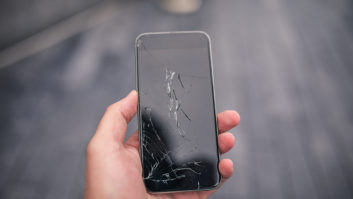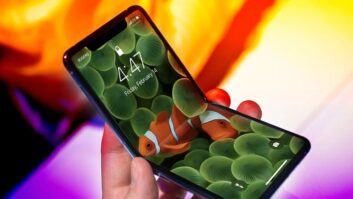Ann Arbor, Mich. – The iPhone is the unsurpassed leader in
customer satisfaction among U.S. smartphone users, but Android-based
smartphones and the Palm Pre are narrowing the gap, and more recent BlackBerry
smartphones “pose a bigger threat” to the iPhone than earlier versions, according to a CFI smartphone report.
The online survey of 1,074 smartphone users was conducted by
business consulting company CFI Group, which
also found that “generic” smartphones based on the Windows Mobile and Symbian
operating systems enjoyed the lowest customer satisfaction levels even though
those systems appear in the majority of smartphones. “The generic smartphone is
unloved, unappreciated, and unlikely to encourage any devotion among its
users,” the report said. “Its main role appears to be as a stepping stone to a
branded smartphone.”
In assessing loyalty to specific smartphone models, CFI
found on a 0 to 100 point customer-satisfaction scale the iPhone scored an 83,
followed closely by Android and the Palm Pre at 77 each, BlackBerry at 73, the
Palm Treo at 70, and other smartphones, including Windows Mobile and Symbian,
at 66. Scores above 80 are considered very good, while scores below 70 “are a
cause for concern,” the company said.
CFI also found that 92 percent of iPhone users describe
their iPhone as the “ideal smartphone,” followed by 58 percent of Android
users, 56 percent of Palm Pre users, 49 percent of BlackBerry users, 16 percent
of Palm Treo users, and 19 percent of Windows Mobile and Symbian smartphone
users.
“Android is an up-and-coming competitor to the iPhone,” the
report contended. “Customers like using the Android and its applications, and
as newer Android-compatible phones are released, the hardware gap with iPhone
will diminish.” As for Palm’s Pre, “the device “is a strong entry for Palm into
the new smartphone market,” but the device “trails badly in the applications
area.” If Palm can shore up the Pre’s applications availability, “it will be
even more competitive,” CFI said. As for BlackBerry models, “legacy phones are
a drag on BlackBerry’s customer satisfaction,” but BlackBerry “is narrowing the
gap with iPhone with its newer phones,” the company said.
Satisfaction with generic smartphones may be low in large
part because consumers who buy them aren’t really looking for a smartphone, CFI
said. Generic smartphone users “are the most likely group to get their phone
because of a deal or ‘just because’ they ended up replacing an old
non-smartphone with a new smartphone.” Carriers, the report said, “are pushing
these smartphones onto the customer.” As a result, “There is no better way to
harm customer satisfaction than to give customers something they don’t really
want and ask them to pay more [in the long run] for that privilege.”
In another conclusion, the report said satisfaction with the
iPhone hasn’t translated into satisfaction with the AT&T network on which
it operates. “[T]he exclusive iPhone relationship is not all positive for
AT&T,” the report said. Only 50 percent of iPhone users rate AT&T as
their ideal carrier, and they would like to defect mainly to improve coverage,
the report said. A total of 75 percent of AT&T’s non-iPhone users, however,
rate AT&T as their ideal carrier.
Much of the dissatisfaction can also be traced to the
statistic that 40 percent of iPhone users churned from another carrier to get
an iPhone, whereas only 12 percent off Android users and 9 percent of Pre users
switched carriers to get their smartphone, the report said. “These [churned] customers
are not predisposed to liking AT&T, and they make it clear in their lack of
loyalty [to AT&T],” the report said. On a 0-100 scale rating overall
carrier satisfaction, AT&T scored only 64 among iPhone owners who switched
to AT&T but scored 72 among iPhone owners who didn’t switch to AT&T.
“By forcing customers to join the AT&T network in order
to acquire their smartphone, AT&T is in effect inviting satisfaction
‘saboteurs’ onto its platform,” CFI contended. “These dissatisfied customers
worsen AT&T’s word-of-mouth and raise AT&T’s cost of doing business,
from responding to calls to customer care to addressing inquiries by the
media.”












